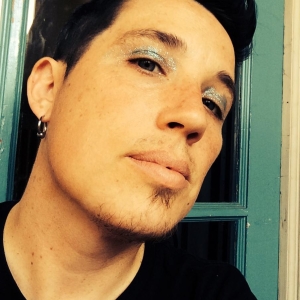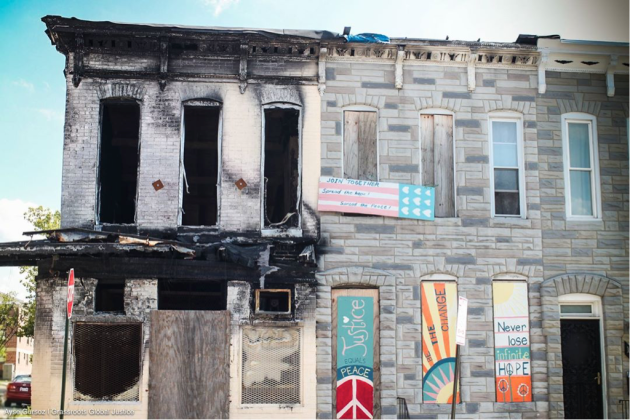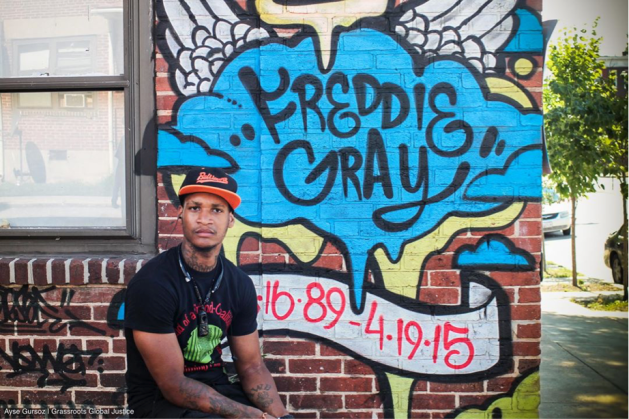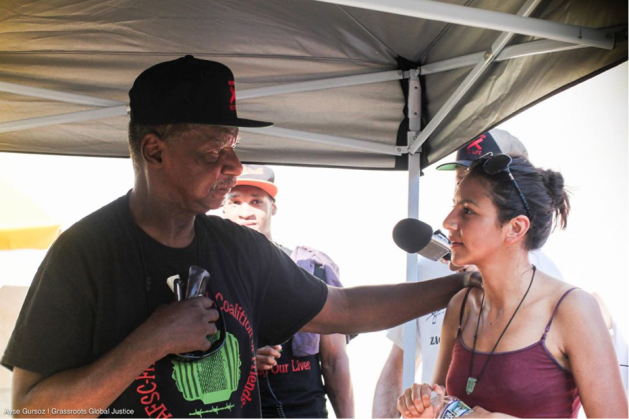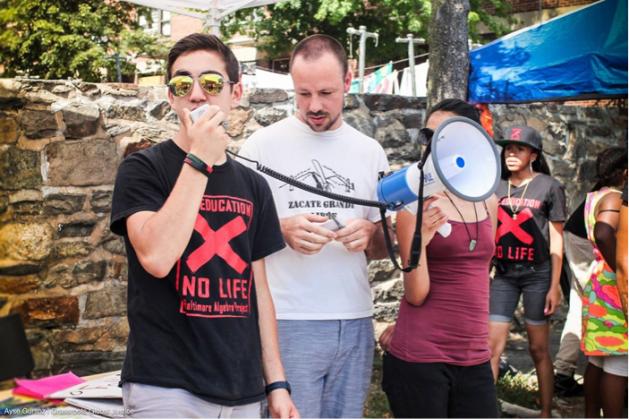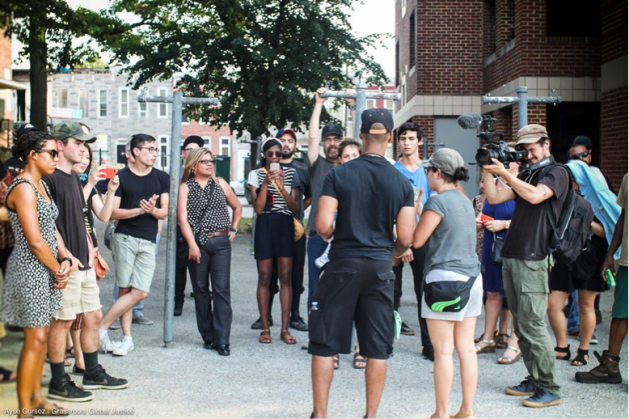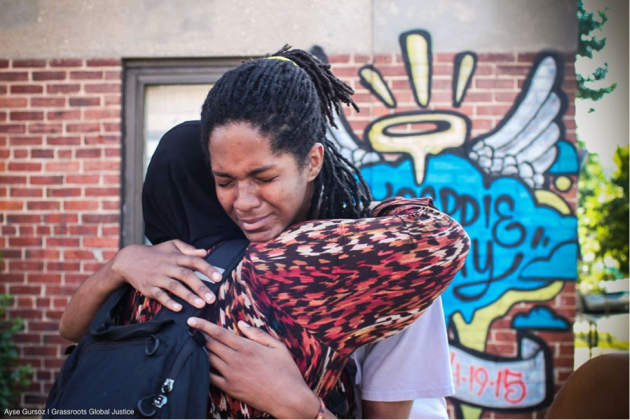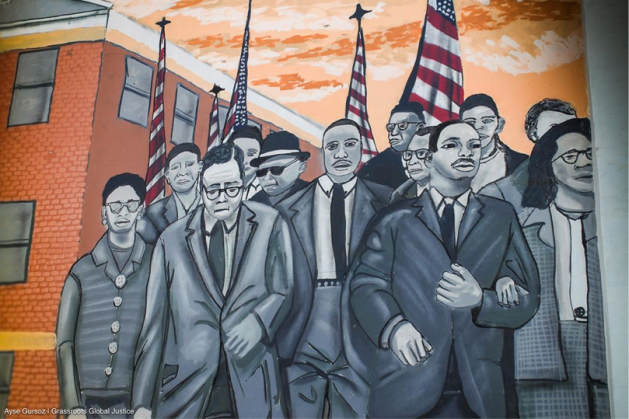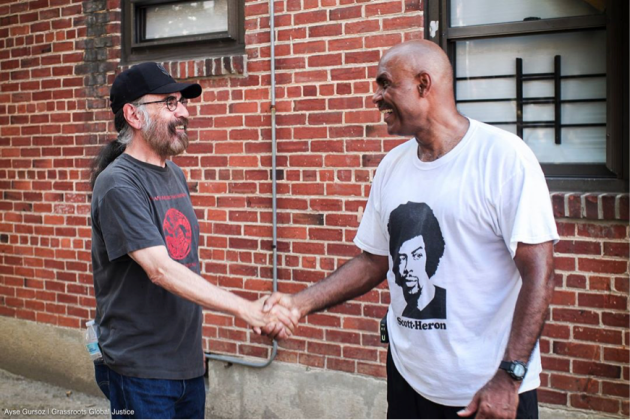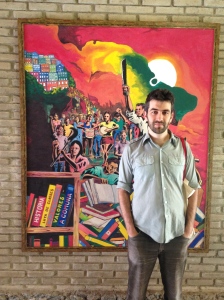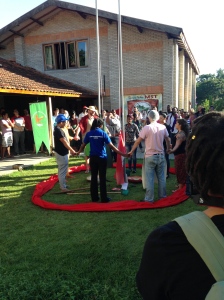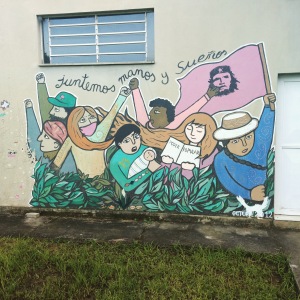“It is a tale told by an idiot, full of sound and fury signifying nothing.”
Macbeth
by Alberto Saldamando, July 23, 2016
I’m on a caravan going from the Republican National Convention in Cleveland, and by bus to the Democratic National Convention in Philadelphia to raise issues of racism, hatred, and other injustices. The Caravan is organized by the Grassroots Global Justice Alliance and includes the Indigenous Environmental Network, that I am representing, along with Southern Maine Workers Center, APEN, Immigration groups from LA, Mujeres Unidas y Activas from the Bay Area, Communities for a Better Environment, the Chinese Progressive Association, Kentuckians for the Commonwealth, Iraq Veterans Against the War and others. It is an amazing collection of committed organizers and organizations from throughout the US. They are all really good people and I’m very glad I came.
The caravan includes the Laura, the daughter of Bertha Cáceres, the assassinated leader of COPINH, and Rosalinda Dominguez Madrid, from the Lenca Indigenous Peoples of Honduras. The Caravan, in all of our actions, has been highlighting the Lenca Peoples and their struggle for respect of their rights as Indigenous Peoples, and against hydroelectric dams and other “development.” I’ve posted a great deal about this already.
I arrived in Cleveland on Tuesday, and on Wednesday we joined with MiJente, which describes itself as a “political home for multi-racial Latinx and Chicanx people.”
We had a banner at least 100 feet long painted as a wall, and some of the calls was “they can build a wall around the country but they can’t build a wall around our hearts,” “Somos un chingo y Seremos mas.” We took the banner wall around Cleveland’s Public Square chanting, following the lead of and in support of MiJente to state that we would not be intimidated by their hatred, their racism and xenophobia.
We spent the afternoon doing our own banner for an action we did Wednesday morning, using the GGJ slogan “It takes roots” to highlight the fact that the roots of our communities will allow us all to weather this storm of hatred and fear mongering. It included a pledge of resistance. It went very well, and as the day before, the press was bored with the RNC, and there were more press and police at these events than demonstrators. After our action we joined in a march called “Stand Together Against Trump.”
Later that evening there was supposed to be a rally by Stand Together but it appears that their leadership was detained, so we took the Public Square and did our own action. I was working security holding people back, but as I was getting the press to stand back there was Amy Goodman holding her microphone up to our speakers. So I just pushed everyone else back who wasn’t Amy Goodman. We repeated our action from the morning to a new and fresh audience of police and press.
Thursday we did a few hours canvassing and registering voters for the local Ohio Organizing Collaborative. I registered 3 voters, one of whom is a republican. We took the bus to Pittsburgh for a dinner with local activists where we presented our positions and perspectives. Laura and Rosalina are truly articulate and have been interviewed many times throughout the caravan. They were particularly articulate in their short presentations to the group in calling out in a very personal way the capitalism promoted by the United States and its transnationals that threatens to destroy their land, their food security and way of life.
In the evenings we watched the RNC and heard some of their rhetoric, including Donald Trump’s acceptance speech and all of its signifiers, all its “dog whistles.” This “Let’s make America Great Again, is really saying “Let’s make America white again.” “Let’s get our privilege back” with all the law and order, silent (white) majority signifiers. Donald Trump’s acceptance speech reminded me of a line from Macbeth: “It is a tale told by an idiot full of sound and fury, signifying nothing.” But for Trump it was a good speech as it still appealed to his hate and fear-mongering constituency but in a more “reasonable” tone. The dog whistles, the high pitched call that only his dogs can hear, promised to protect white people and white people only. No mention of Black lives; he promised more coal and oil production and use, more carbon emissions, more bullying of other countries, and the mother of all trade wars. And the mother of all empty signifiers, whatever the problem, “I can fix it”.
They system is in crisis. In the face of perpetual war, real economic crisis, ISIS, terrorists running amuck, and a climate crisis that threatens the very survival of humanity, Trump declares that whatever the perceived problem is, he can “fix it” with more of the same. Entropy is growing, the system is losing heat. Trump is a symptom of this entropy, the system breaking down. Where the heat will go is the question. And it could go his way, ending up with a white supremacy and militarism, even more severe and frequent climate catastrophes – Trump fascism.
Peace be with all my relatives. Let’s all work that the tale told by this idiot not happen. Vote your conscience but join and support our communities, particularly our communities in resistance and struggle. They are our liberation from all this BS, conflict and confusion.
By the way, GGJ needs funding to pay for this caravan. So if you’re so inclined, please donate here: https://www.crowdrise.com/it-takes-roots-to-change-the-system
Alberto Saldamando, Indigenous Environmental Network

I work with the Indigenous Environmental Network primarily as a technical inside person at the annual Framework Convention on Climate Change Conference of Parties. I also work on International Indigenous Rights and Human Rights in the climate change context. I represent IEN in various capacities, including the California Air Resources Board (Jurisdictional REDD Program) and as an IEN delegate on an international delegation to Honduras to investigate the assassination of Berta Cáceres, and to honor her memory.




